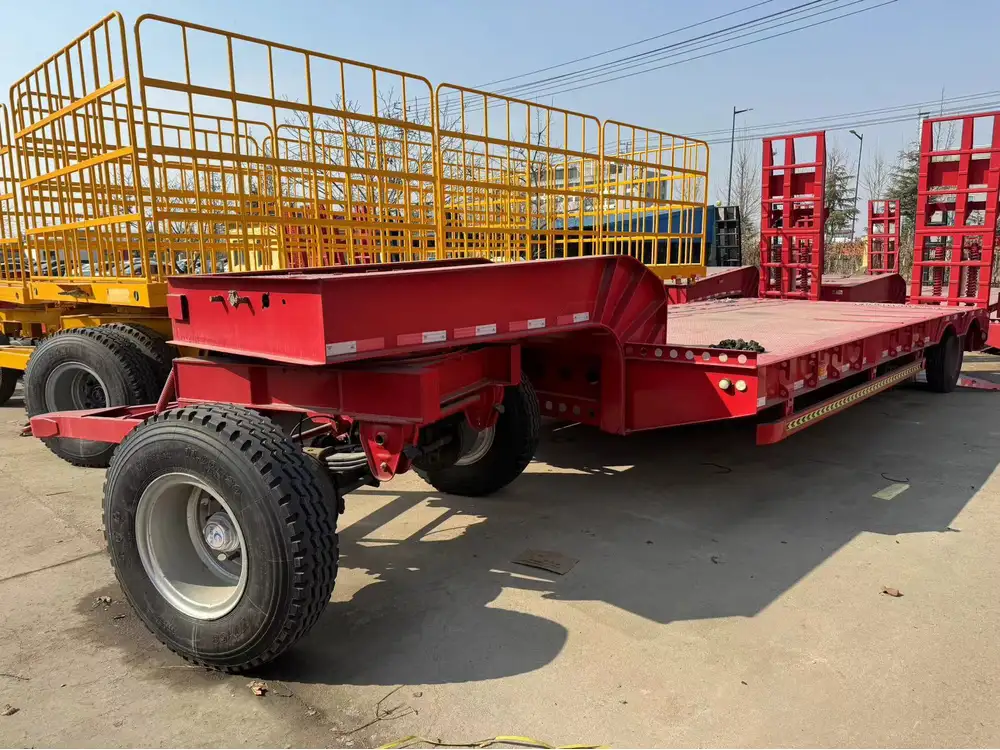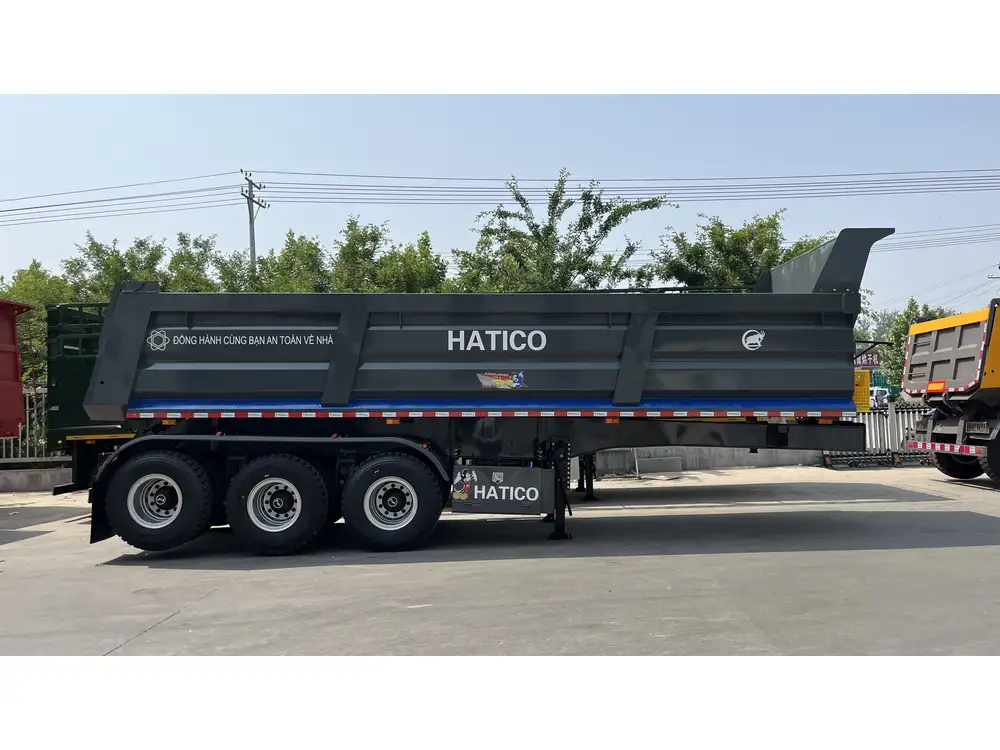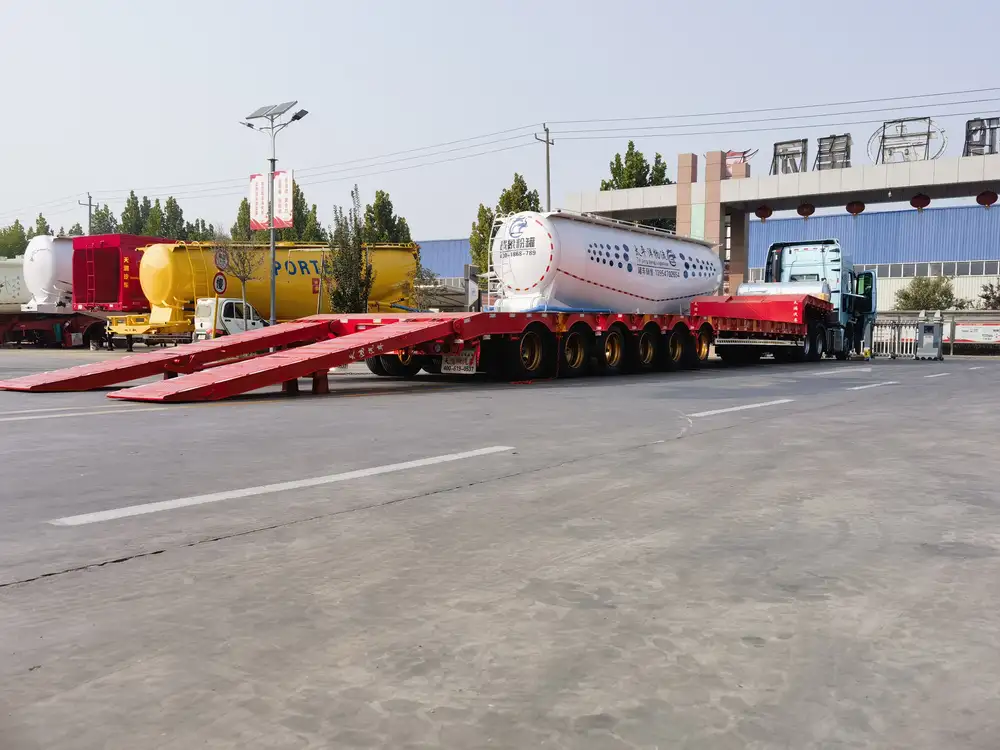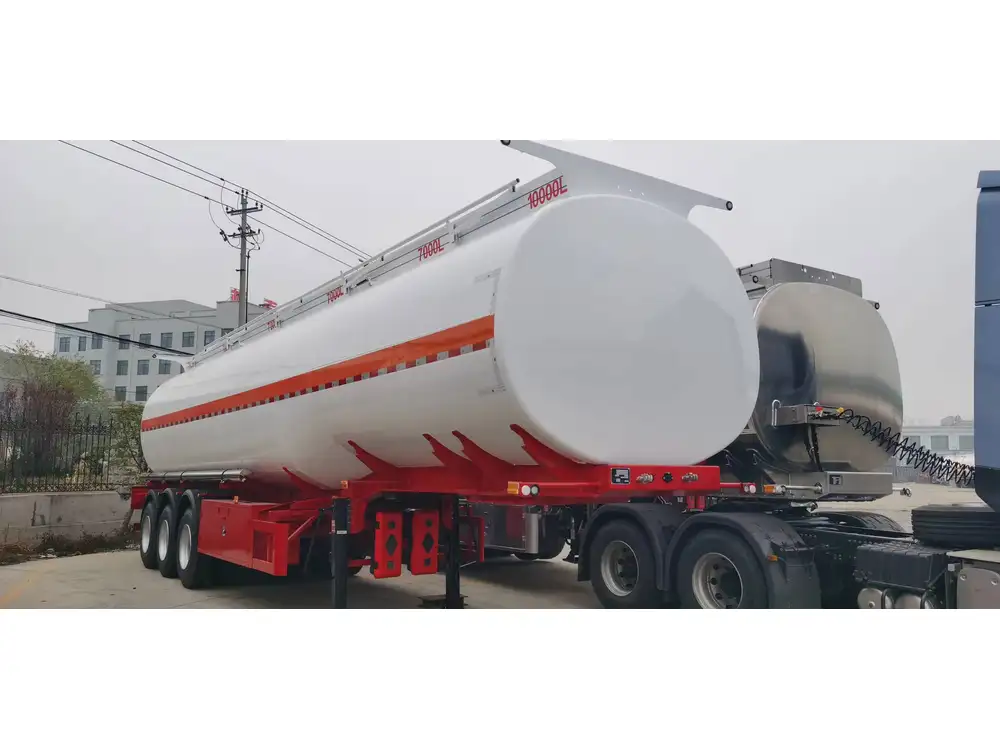When managing a fleet that includes tanker trailers, understanding the washing process is crucial not only for maintaining cleanliness but also for ensuring safety, compliance, and longevity of the equipment. We delve deep into the details surrounding the washing of tanker trailers, including timeframes, best practices, and factors that may influence cleaning efficiency.
Importance of Cleaning Tanker Trailers
Cleaning tanker trailers is not merely a matter of aesthetics. Proper cleaning is essential to prevent contamination of subsequent loads, avoid product contamination from residual substances, and comply with regulatory standards in various industries, including food, chemical, and petroleum sectors. As a result, we recommend adhering to a routine washing schedule.
Key Benefits of Regular Cleaning:
| Benefit | Explanation |
|---|---|
| Safety and Compliance | Ensures adherence to health and safety regulations. |
| Equipment Longevity | Prevents corrosion and damage caused by residual chemicals. |
| Efficient Product Transfer | Minimizes risk of contamination for future loads. |
| Professional Appearance | Enhances the company’s image and credibility. |

How Long Does It Take to Wash a Tanker Trailer?
The time it takes to wash a tanker trailer can vary widely depending on several factors:
1. Type of Tanker Trailer
Different types of tanker trailers have distinct configurations and interior coatings that require varying cleaning methods, which impacts the time taken to wash:
Food-grade Tankers:
- Time: 1.5 to 3 hours
- Note: Requires a meticulous cleaning process to avoid cross-contamination.
Chemical Tankers:
- Time: 2 to 4 hours
- Note: Often necessitates specialized cleaners and safety protocols.
Petroleum Tankers:
- Time: 1 to 2 hours
- Note: Generally quicker due to simpler internal structures and easier contaminants.
2. Cleaning Methodology
The approach taken for washing can dramatically alter the duration:
| Cleaning Method | Time Required | Description |
|---|---|---|
| High-Pressure Washing | 1 to 2 hours | Effective for general contaminants; uses powerful jets. |
| Manual Washing | 2 to 5 hours | Requires significant labor; typically combines scrubbing with rinsing. |
| Automated Washing | 45 minutes to 1.5 hours | Highly efficient; uses machines designed for industrial washing. |

3. Condition of the Trailer
The existing state of the tanker trailer is a critical determinant:
- Lightly Soiled: 1 to 2 hours
- Moderately Soiled: 2 to 3 hours
- Heavily Contaminated: 3 to 5 hours and potentially requires additional treatments or chemicals.
4. Presence of Residual Chemicals
Tankers that previously transported hazardous materials might necessitate specialized cleaning protocols, greatly extending the washing timeframe.
Best Practices for Washing Tanker Trailers
Following efficient and industry-compliant washing practices not only saves time but also enhances effectiveness. Here are some strategies to consider:

A. Pre-Wash Inspection
Conducting an initial assessment identifies potential hazards, residuals, and contamination levels.
B. Choosing the Right Cleaning Agents
Utilizing appropriate detergents, especially those compatible with the previous load, is critical for optimal cleaning while maintaining equipment integrity.
- Alkali Cleaners: Effective for fats, oils, and organic residues.
- Acid Cleaners: Essential for inorganic soils and rust removal.
C. Implementing a Wash Schedule
Creating a routine that outlines specific washing intervals based on tanker usage ensures that each unit maintains its operational readiness.
| Frequency | Recommendation |
|---|---|
| After Every Load | For food-grade and sensitive materials. |
| Weekly | For general cleaning of all tanker types. |
| Monthly | Deeper cleaning and maintenance check. |

D. Safety Protocols
Personal Protective Equipment (PPE) must be worn during the washing processes to safeguard against chemical exposure. Additionally, teams should be trained in handling hazardous materials as per Occupational Safety and Health Administration (OSHA) guidelines.
Common Questions Regarding Tanker Trailer Washing
Q1: What are the costs associated with washing tanker trailers?
The washing cost varies based on service providers, local rates, and the cleaning approach used. Typically, the prices can range from $100 to $500 per wash, depending on the trailer’s size, type, and condition.

Q2: Can tanker trailers be washed at home?
While it’s possible to wash tanker trailers using high-pressure hoses and cleaning agents at home, it can be time-consuming and may not meet the industry standards for cleanliness, particularly for food-grade trailers.
Q3: How do I find a reliable washing service?
Look for services that specialize in commercial vehicle cleaning, check for certifications, read reviews, and ensure they follow appropriate safety and environmental regulations.
Wrapping Up: Maximizing the Efficiency of Your Trailer Washing Routine
In conclusion, the duration required to wash a tanker trailer hinges on various factors, including the type of trailer, cleaning methodology, cleaning agents used, and the level of contamination present. A proficient washing routine not only contributes to safety and compliance but also enhances the operational efficiency and longevity of your assets.
By implementing the best practices, maintaining a diligent wash schedule, and adhering to safety protocols, you can significantly optimize your trailer cleaning process. Whether you’re managing food-grade transports or hazardous material carriers, ensuring a consistent and thorough cleaning regimen is paramount to maintaining the integrity and performance of your tanker trailers.
By recognizing the importance of these facets, we are better equipped to address user queries concerning tanker trailer washing effectively, reliably, and comprehensively. Your fleet deserves the best practices in maintenance and safety compliance, establishing a standard that not only meets but exceeds industry benchmarks.



